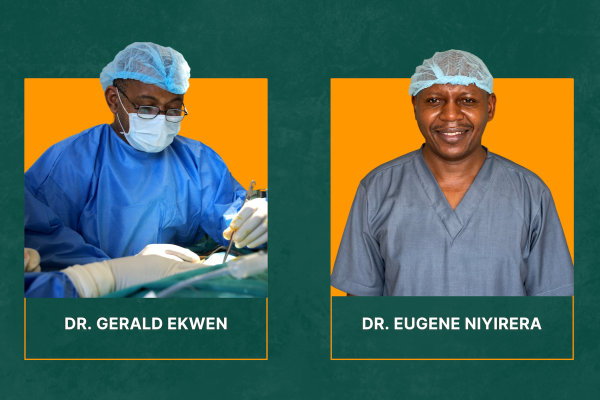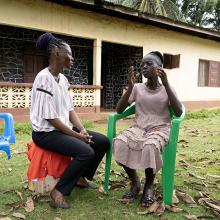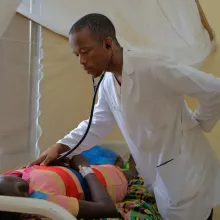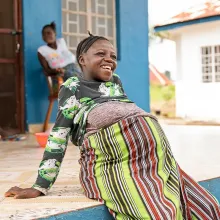Partners In Health (PIH) surgeons Dr. Gerald Ekwen from Liberia and Dr. Eugene Niyirera from Sierra Leone recently completed a transformative month-long training and surgical observership at Queen’s University in Kingston, ON. The collaboration with Queen’s and Kingston Health Sciences Center, facilitated by PIH Canada, aimed to expand Dr. Ekwen and Dr. Niyirera’s surgical skills and knowledge, enabling them to better serve their communities upon return.
The visit was also a first step in building a potentially long-term partnership between Queen’s and PIH Canada that would benefit medical staff and patients at PIH care delivery sites and their Canadian collaborators alike.
In late May, Drs. Ekwen and Niyirera and Queen’s associate professor and surgeon Dr. Sulaiman Nanji spoke with Meghan Balogh from the Kingston Whig-Standard about the practice of global surgery, challenges faced in low-resource settings, and what they hoped to accomplish together. Read the full story here: African surgeons gain month-long training in Kingston thanks to international partnership.
“My grandfather was a traditional healer, and in my childhood I was working with him, and he was teaching me,” Dr. Niyirera told the Whig-Standard. “He was treating poor people for free. And I decided to imitate him in the future.” Dr. Niyirera serves as the sole general surgeon at Koidu Government Hospital in Sierra Leone’s Kono District, with a catchment area of approximately 500,000.
Similarly, Dr. Ekwen is the only general surgeon at J.J. Dossen Memorial Hospital in Harper, Liberia, catering to a similarly sized population. “I remember when I was a medical student and I had gastroenteritis, and I couldn’t receive care because I had no money,” Dr. Ekwen said. “I grew up in that kind of environment where you suffered, and you could easily die, because you have to pay for health care. That pushed me to get into medicine, and then to get into surgery and to develop interest in working where people need our services most.”
Both hospitals are situated in remote areas, far from their respective capitals, and often lack essential medical infrastructure. The disparities in staffing, specialization, and in technology stood out to Dr. Ekwen and Dr. Niyirera during their visit; for both, it was their first time travelling outside of Africa.
Dr. Nanji noted that while the expertise of his West African colleagues is comparable to Canadian surgeons, the disparity in available resources significantly impacts the scope of procedures they can perform. “Their knowledge and our knowledge is very similar, but what we’re able to actually do in our professions is vastly different, related to resources,” he said. “We can speak as colleagues, even though they can’t perform (the same operations). And so there’s a lot of limitations to professional development in these countries for eager, ambitious medical professionals.
“The opportunity to come abroad and see and learn gives them that opportunity, because it’s not available locally, despite interest and ambition and curiosity…I think it’s really important for all of us, whether we’re in our training or finished, to be more globally aware of the disparities in health care around the world.”
This partnership reflects PIH’s commitment to strengthening health systems by equipping medical professionals with the tools and training they need to deliver high-quality care in underserved communities.
Read the Kingston Whig-Standard story here.



